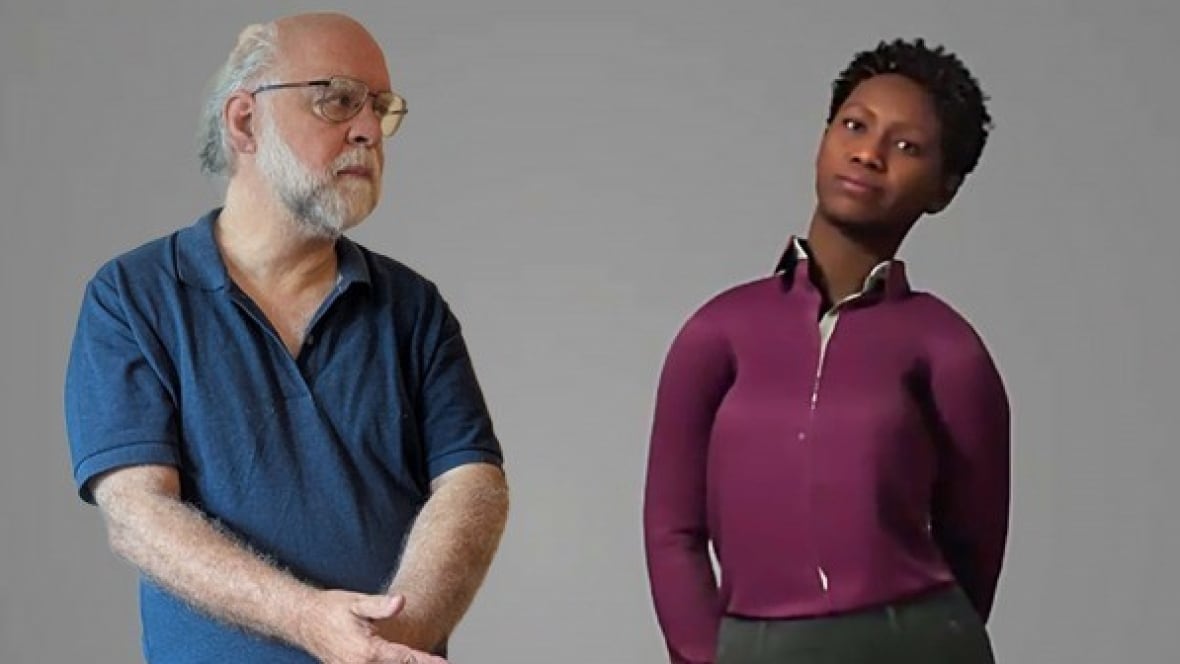Education
Simon Fraser University Unveils 3D AI Teaching Assistant “Kia”

A new era in education is set to begin at Simon Fraser University (SFU) in Burnaby, B.C., with the introduction of a 3D artificial intelligence teaching assistant named Kia. This digital persona, created by computer scientist and AI expert Steve DiPaola, will assist in his first-year course focusing on the history and ethical challenges of artificial intelligence (AI). Kia, who has no prior experience or academic credentials, will make her classroom debut on September 3, 2023.
Kia is designed to be an engaging educational tool, featuring a digital representation of a short-haired Black female with “real-time facial expressions, lip-sync, and a multitude of emotive body languages.” In an online introduction to the course, Kia stated, “This class is designed for students with no prior AI experience. I’ll be here to provide answers, insights, and to facilitate lively discussion whenever questions arise.”
DiPaola emphasizes that Kia is not intended to replace human educators. He has clarified that his human teaching assistant will continue to play an important role in the class and that Kia will not be grading assignments. Instead, he envisions Kia as an AI collaborator who can provide insights during discussions about the ethical implications of AI technology. “What better way to talk about AI ethics than to bring AI into the classroom to teach alongside me?” DiPaola remarked.
Innovative Approach to AI Education
The integration of Kia into the classroom has drawn attention from both educators and researchers. According to SFU, DiPaola’s initiative represents a “world first” in the realm of AI-assisted education. Other experts are closely monitoring this development, including Alan Mackworth, professor emeritus in computer science at the University of British Columbia. Mackworth expressed concern about the potential pitfalls of anthropomorphizing AI, stating, “A lot of people are afraid and opposed to anthropomorphizing AI. They’ll say this is kind of a slippery slope.”
Kia’s capabilities are expected to generate interesting discussions. “It’ll make a lot of mistakes, for one thing, and it’ll make hilarious mistakes,” Mackworth stated. This playful aspect of the AI persona could facilitate a deeper understanding of AI’s limitations and potential errors.
Education professor Sarah Eaton from the University of Calgary also acknowledges the ethical considerations surrounding the use of AI in educational settings. She remarks that while there could be concerns about how schools might exploit AI for cost savings, Kia embodies a forward-thinking approach to teaching. “This is teaching for the future, but doing it today,” she noted. Eaton believes that AI assistants like Kia could play a significant role in personalized education, particularly for students with diverse learning needs.
As educational institutions continue to explore the integration of AI technologies, the introduction of Kia showcases the potential for a collaborative future between human educators and artificial intelligence. With this innovative approach, SFU not only aims to engage students in critical discussions about AI but also to prepare them for a rapidly evolving technological landscape.
-

 Science3 months ago
Science3 months agoToyoake City Proposes Daily Two-Hour Smartphone Use Limit
-

 Top Stories3 months ago
Top Stories3 months agoPedestrian Fatally Injured in Esquimalt Collision on August 14
-

 Health3 months ago
Health3 months agoB.C. Review Reveals Urgent Need for Rare-Disease Drug Reforms
-

 Technology3 months ago
Technology3 months agoDark Adventure Game “Bye Sweet Carole” Set for October Release
-

 World3 months ago
World3 months agoJimmy Lai’s Defense Challenges Charges Under National Security Law
-

 Lifestyle3 months ago
Lifestyle3 months agoVictoria’s Pop-Up Shop Shines Light on B.C.’s Wolf Cull
-

 Technology3 months ago
Technology3 months agoKonami Revives Iconic Metal Gear Solid Delta Ahead of Release
-

 Technology3 months ago
Technology3 months agoApple Expands Self-Service Repair Program to Canada
-

 Technology3 months ago
Technology3 months agoSnapmaker U1 Color 3D Printer Redefines Speed and Sustainability
-

 Technology3 months ago
Technology3 months agoAION Folding Knife: Redefining EDC Design with Premium Materials
-

 Business3 months ago
Business3 months agoGordon Murray Automotive Unveils S1 LM and Le Mans GTR at Monterey
-

 Technology3 months ago
Technology3 months agoSolve Today’s Wordle Challenge: Hints and Answer for August 19









